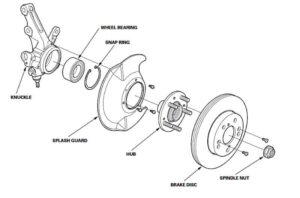Do you ever find yourself standing at the gas pump and wondering which gas to use? Premium? Regular? Premium vs regular gas- what’s the difference, anyway? Is it worth paying the extra money for premium gas?
Gasoline is an essential fuel for vehicles to function. However, there are different grades of gasoline available at the pump, each with its own set of benefits and drawbacks. As consumers, we often need more information about fuel quality and the importance of premium gas. So, how can we decide which gasoline is best suited for our vehicle?
Choosing between premium and regular gasoline can be confusing for many drivers. While some believe premium gas is the way to enhance vehicle performance, others swear by regular gas. So, before filling up your tank, it’s essential to understand the differences between the two and which is ideal for your vehicle.
Below, we’ll explore the pros and cons of premium and regular gas to help you make an informed decision.
How Does Premium Petrol Differ From Regular Petrol?
The most popular types of premium petrol offered at petrol stations in the United States are 91 octane and 93 octanes. Premium petrol is any type with an Octane level of 91 or higher.
Most petrol stations refer to petrol sold at 89 octanes as midgrade, whereas petrol delivered at 87 octanes is referred to as regular.
Distinctions between both gases
1. Octane Level
The most significant difference between premium and regular gas is the octane level- the measure of fuel’s resistance to igniting prematurely in the engine. Premium gas usually has an octane rating of 91 or higher, while regular gas often has an octane rating of around 87.
2. Price
The cost of premium gas is higher than regular gas at the pump, which is the primary reason people select regular over premium, even if their cars require a higher octane level.
However, it’s essential to know that using premium gas can improve fuel efficiency and engine performance, potentially saving you money in the long run.
3. Engine Requirements
Many cars require premium gas because high-performance engines work better with high-octane fuel. These engines have a higher compression ratio than regular engines, which can cause knocking and other engine problems if low-quality fuel is used.
4. Engine Performance
The higher octane rating in premium gas can improve engine performance and responsiveness, resulting in smoother acceleration, less engine noise, and increased power. On the contrary, using regular gas on a high-performance engine can cause a reduction in horsepower and torque.
5. Environmental Benefits
Using premium gas can result in fewer emissions and better fuel economy. Engines designed for premium fuel can reduce carbon footprint by burning fuel more efficiently.
Additionally, a well-maintained engine using premium gas tends to have a longer lifespan, reducing the environmental impact of purchasing and disposing of engines more frequently.
Do You Need Premium Gas for Your Car?
While most engines are designed for city driving with standard petrol, high-performance automobiles have several features that require premium petrol to function properly.
These include characteristics that call for a specific fuel type, such as more significant compression ratios or engines with turbocharging.
Regular petrol would decrease horsepower, performance, and fuel efficiency in a car that can only run on premium fuel. With continual use, you also risk doing your engine irreparable harm.
Does Premium Gas Outperform Regular Gas?
To keep your engine operating smoothly and cleanly, EPA-mandated additives are present in all grades of petrol. Different additional detergents lessen the accumulation of deposits and eliminate previous ones. Both regular and premium petrol is designed for particular makes and models of automobiles.
The premium will provide little benefits if your car is designed to run on regular gasoline. Using premium gasoline in a car not designed for it can harm the engine by causing it to run less efficiently and producing more emissions.
When Should One Purchase Premium Fuel?
There is a reason why the owner’s manual for your car advises using premium petrol. Turbochargers, high-compression engines, and other high-performance features are common in vehicles with premium fuel.
While not using premium petrol won’t necessarily harm your engine, using standard or midgrade petrol could reduce certain aspects of the performance of the premium engine you purchased.
Does Premium Gas Possess the Capability to Clean the Engine?
No, premium petrol is not a magic cleaner for engines. Carbon build-up is the fundamental issue with engine maintenance and can occur gradually with all fuel types if regular maintenance is neglected.
The positive aspect is that detergents can somewhat minimize carbon deposits in normal and premium petrol. If you choose premium products, the detergents might be stronger. Nevertheless, having your car professionally serviced is a prerequisite to a clean fuel system.
The Final Thoughts
In conclusion, choosing the right gas for your vehicle will depend on your engine type and your preference. Remember to read your vehicle owner’s manual before choosing between premium and regular gas, and consider the long-term benefits of a well-maintained engine.
Whether you opt for premium or regular gas, maintain it consistently to ensure optimal performance.

